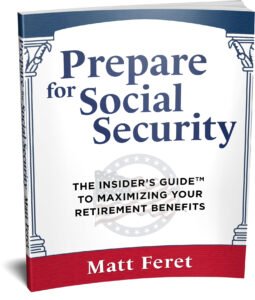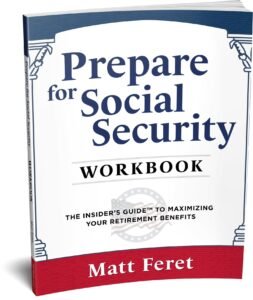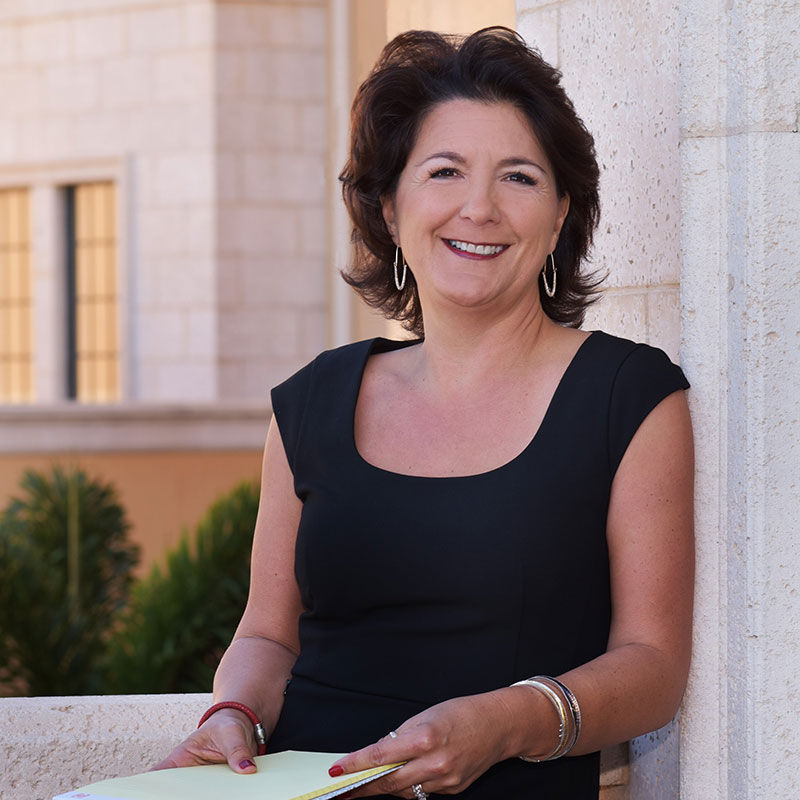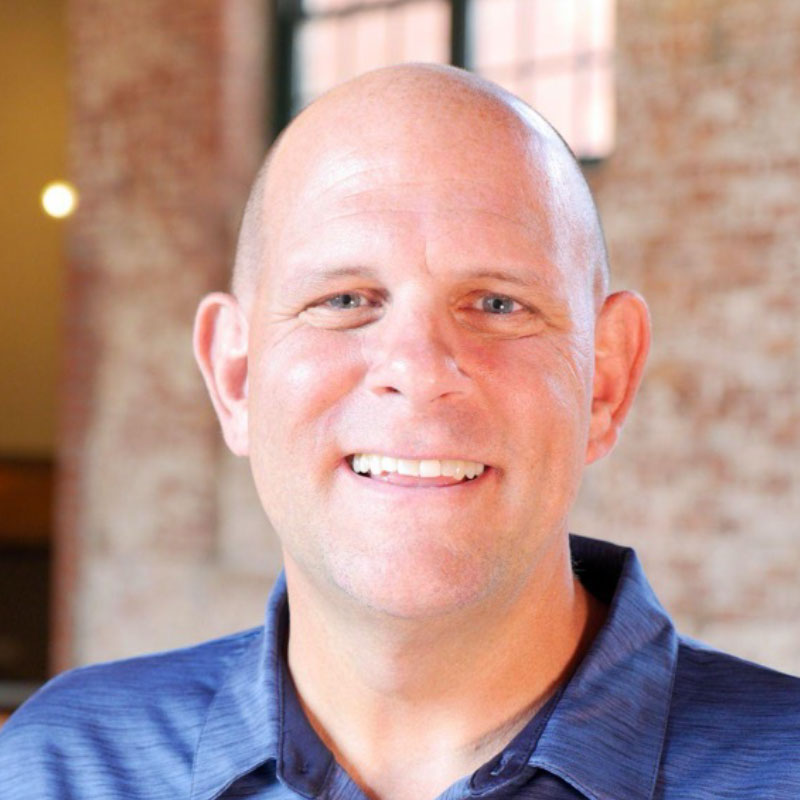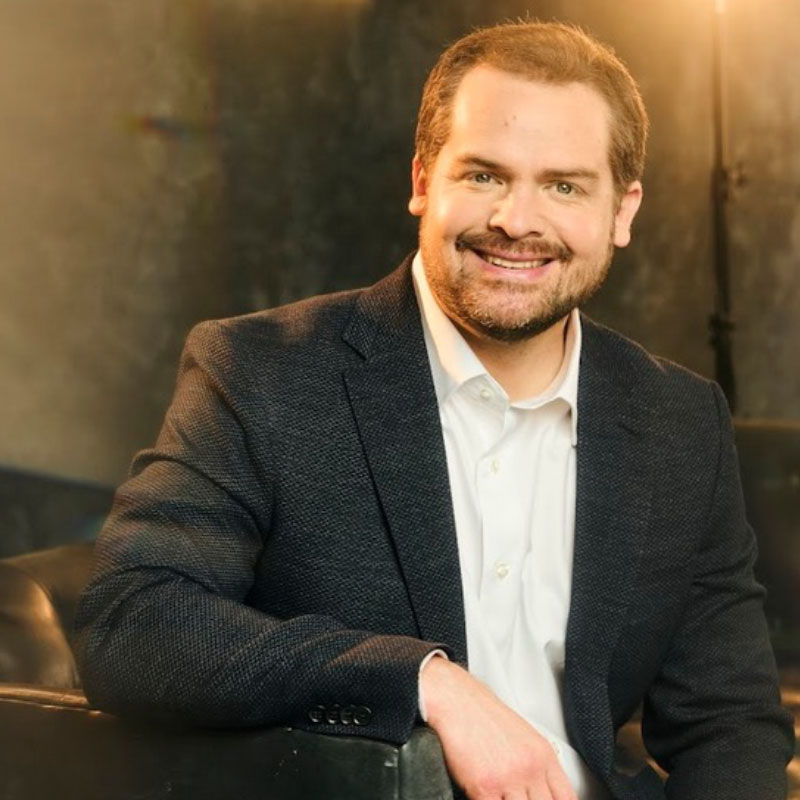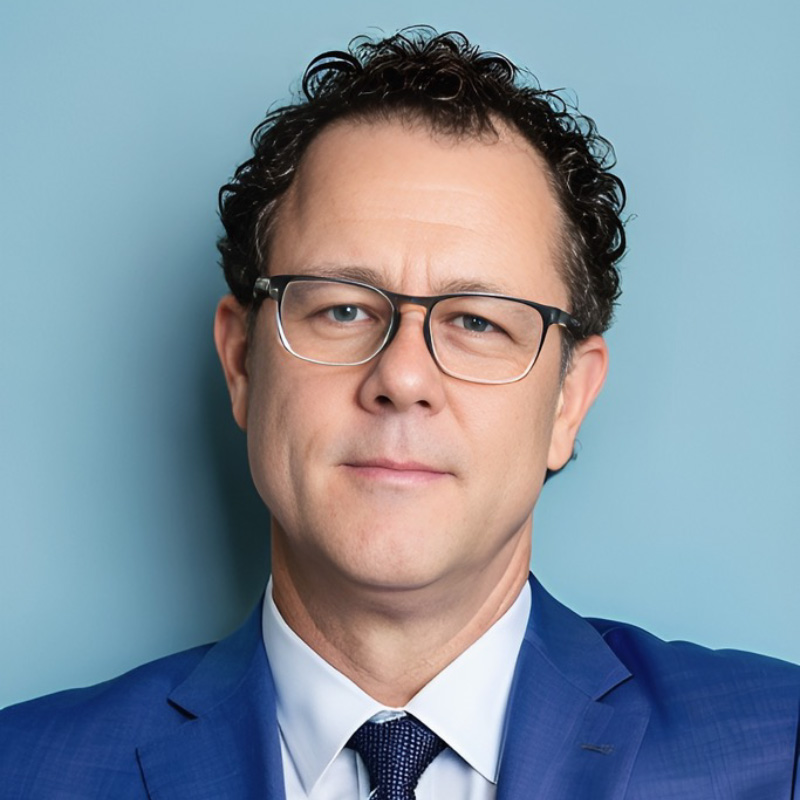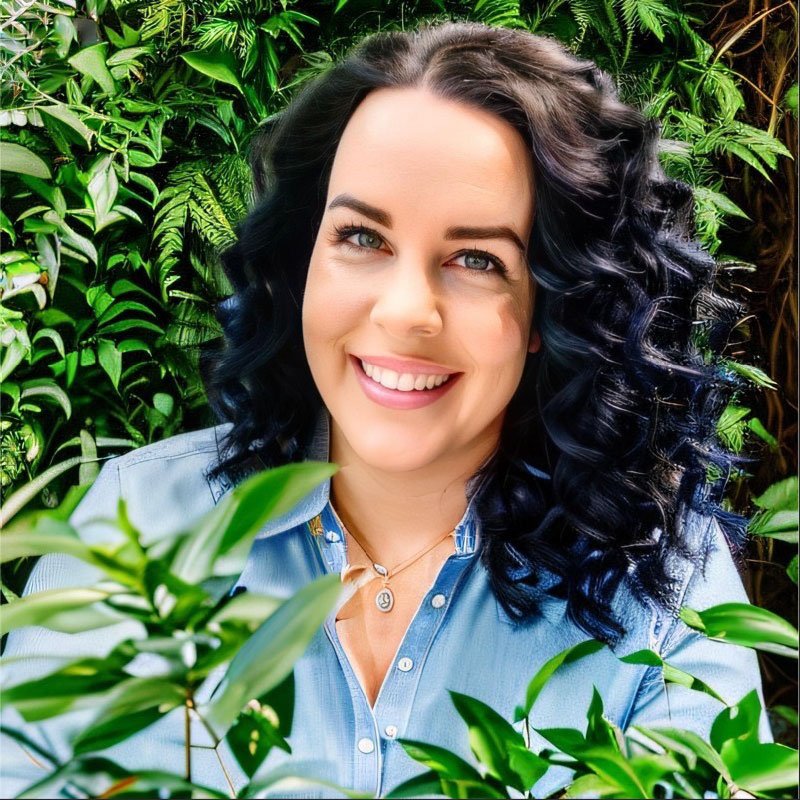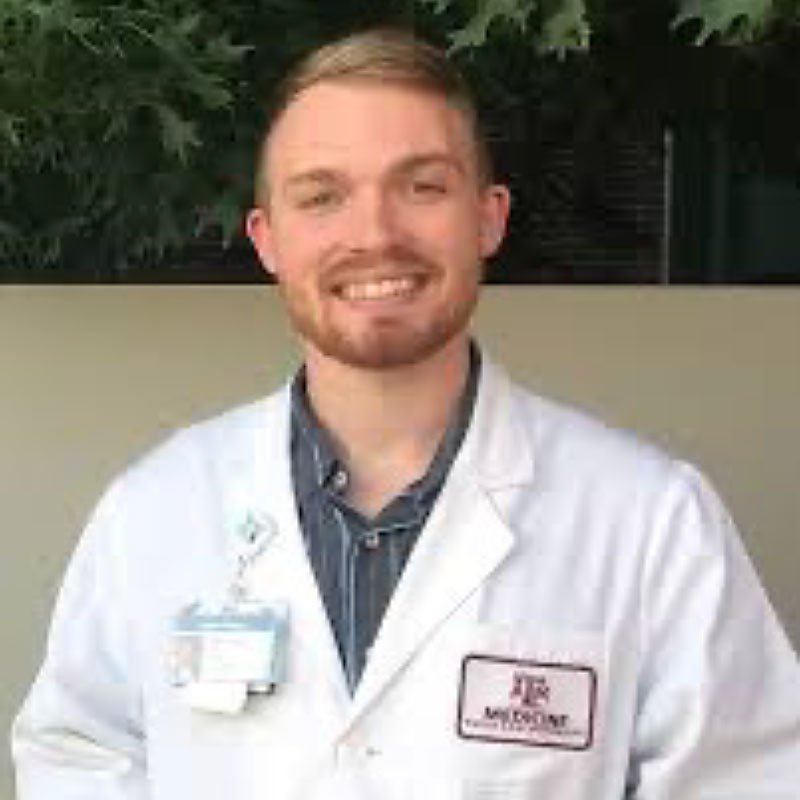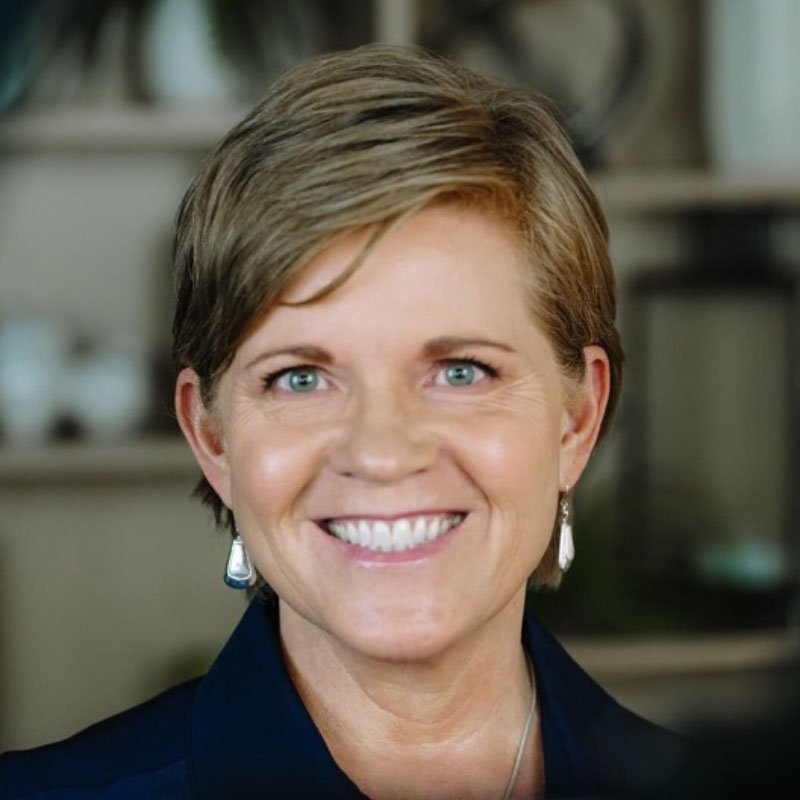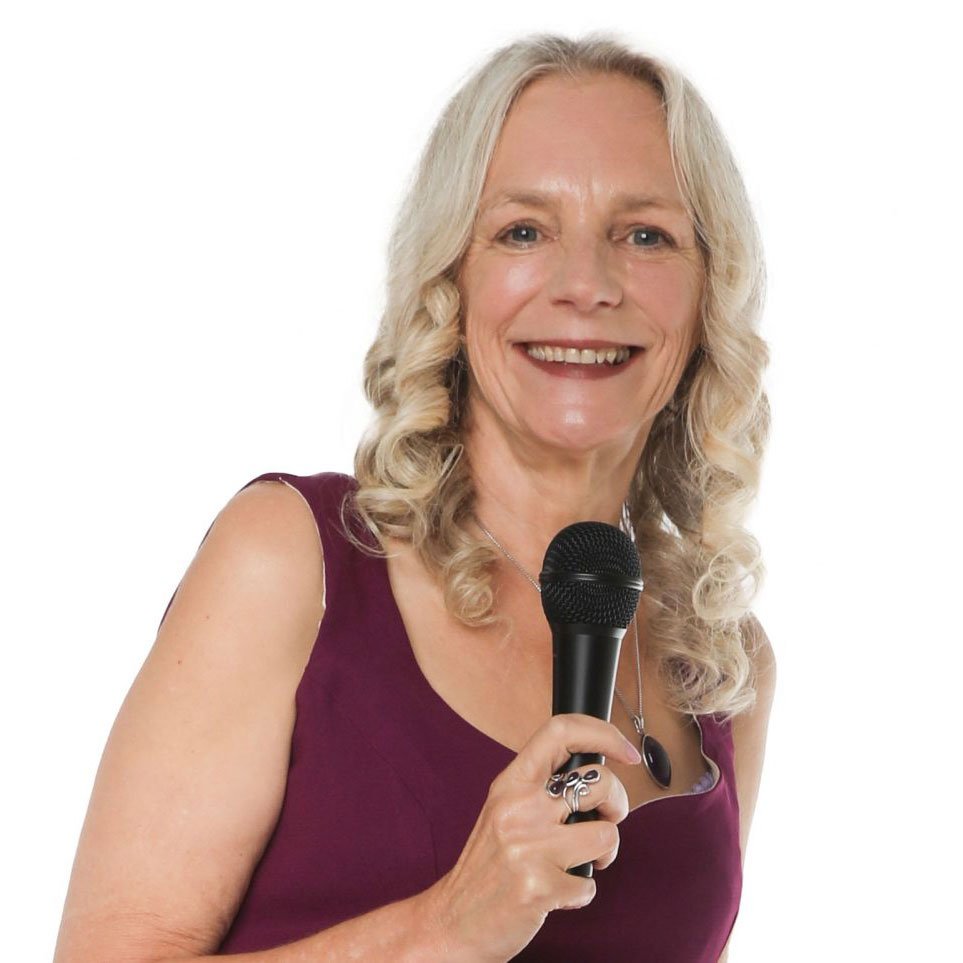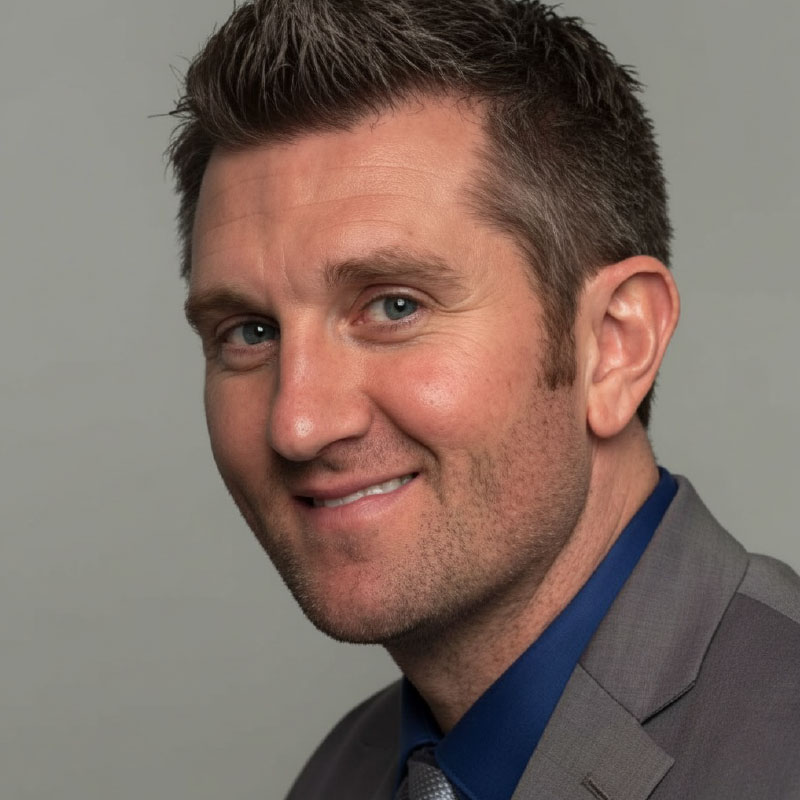Share This:
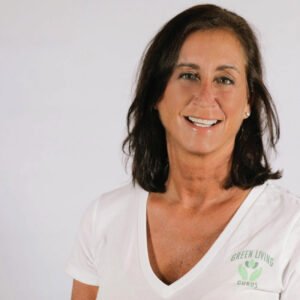
In this episode of The Matt Feret Show I interview Therese Forton-Barnes, a green-living expert, advocate, and business owner. Therese and I discuss her mission of detoxifying American households, and she identifies the top products mindful consumers may want to avoid. Therese shares insight into her process of downsizing toxins in her home and provides helpful resources listeners can explore to learn more about the ingredients in their cleaning supplies, drinking water, and health and beauty products.
If you enjoyed this episode of The Matt Feret show, you may also enjoy:
Preventing Cancer with a Plant-Based Diet with Dr. Dominic Brandy, M.D., the Cancer Veggie Doc
How to Overcome a Sedentary Lifestyle & Increase Your Health with Personal Trainer, Sammy Wilson
Holistic Wellness and Decentering Pharmaceuticals with Pharmacists Sylvia and James Boblak
Listen to the episode on Apple Podcasts, Spotify, Deezer, Podcast Addict, Stitcher, Google Podcasts, Amazon Music, Alexa Flash Briefing, iHeart, Acast or on your favorite podcast platform. You can watch the interview on YouTube here.
Brought to you by Prepare for Medicare – The Insider’s Guide book series. Sign up for the Prepare for Medicare Newsletter, an exclusive subscription-only newsletter that delivers the inside scoop to help you stay up-to-date with your Medicare insurance coverage, highlight Medicare news you can use, and reminders for important dates throughout the year. When you sign up, you’ll immediately gain access to seven FREE Medicare checklists.
Quotes:
“It’s a matter of just educating yourself a little bit. Don't throw everything away. Look at what you're using. Concentrate on that a little bit. And if there's something you just can't get rid of, you have that one thing that you just are addicted to. It's okay! But try to start eliminating every other area that you possibly can.”
“According to the CDC, our homes are more polluted than the outdoor air. And that is because of all the products people are using in their homes, bringing in their homes, spraying in their homes, using candles in their homes.”
“If you're going to take a step in the right direction, fragrance-free, free and clear, that's a step in the right direction. I know people are like, well, I use the one that says ‘for allergies’ or whatnot. Good step in the right direction. There are brands on the market today that are a better step in the right direction.”
#088
Selected Link from the Episode:
Host’s Links:
All Things Medicare: prepareformedicare.com
Decoding Social Security: prepareforsocialsecurity.com
My Written Works on Amazon: www.amazon.com/stores/Matt-Feret/author/B09FM3L4WW
The Matt Feret Show YouTube: www.youtube.com/@themattferetshow
Network with me on LinkedIn: http://www.linkedin.com/in/mattferet
Follow me on X: twitter.com/feret_matt
See behind the scenes on Instagram: www.instagram.com/matt_feret/
Join our community on Facebook: www.facebook.com/themattferetshow/
Guest’s Links:
Green Living Guru’s: https://thegreenlivinggurus.com/
Instagram: https://www.instagram.com/teeforton/?hl=en
LinkedIn: https://www.linkedin.com/in/therese-tee-forton-barnes-85a821a/
Guest Resources:
Full Show Transcript:
Announcer:
This episode of The Matt Feret Show is brought to you by the Brickhouse Agency. Brickhouse is a boutique independent health insurance agency that focuses on finding the right Medicare coverage for folks across the country. Matt's wife, Niki, is the heart behind Brickhouse. She's great at making confusing things clear and is passionate about helping people find a Medicare insurance policy that suits their individual needs. To schedule a free one-on-one appointment with Niki or a member of her team, head on over to brickhouseagency.com or simply call (844-844-6565), and someone will help you schedule a phone call or a Zoom meeting. The consultation is free because the insurance companies pay Brickhouse, not you. There's never any pressure or obligation to enroll. Your clearer, simpler Medicare journey is just a call or click away. brickhouseagency.com. Not affiliated with or endorsed by the government or federal Medicare program. Contacting Brickhouse Agency LLC will direct you to a licensed insurance agent.
Introduction to Therese Forton-Barnes [1:09]
Matt Feret:
Hello everyone. This is Matt Feret, author of Prepare for Medicare and Prepare for Social Security Insider's, guidebooks, and online course training series. Welcome to another episode of The Matt Feret Show, where I interview insiders and experts to help light a path to successful living in midlife retirement and beyond. Therese, welcome to the show.
Therese Forton-Barnes:
Thank you for having me, Matt. I'm glad to be here.
Matt Feret:
I'm glad you are here. Tell everybody what you do, how long you've been doing it, and how you help people.
Therese Forton-Barnes:
So, I kind of have a different way of the path I took to where I am in the healthy living space. A lot of people find out the hard way from getting ill or having a disease. I was lucky enough, I grew up in the sixties and seventies and my mother was ahead of her time, and we were eating organic food our whole entire life. They would not let us have takeout McDonald's pizza, you name it. Pizza was a big special thing once in a while. But my mother was very ahead of her time and she was protecting us from all of the artificial ingredients that were out there. In addition to cleaning the house, we had chores and we only did with baking soda and vinegar. And then growing up throughout all this, we were considered granola heads and we grew up in the city of Buffalo.
We shopped at a little co-op. My mother worked there. We still shop there to this day. But I went to school to open up a health food store that everybody knows as Whole Foods. I had a business plan and it was way before Whole Foods even began, and I did not go that path. I went the path of event and party planning, party and wedding planning. I've had a business here in Buffalo for 37 years, but right before the pandemic, I decided I wanted to really do what I ventured out to do. And that was really helping people get toxic chemicals out of their homes, out of their lives as best possible to make sure that their health was optimal. And I've done that since I did that in high school. I've been doing it for a long time. And just on the side and having people come to me, a lot of cancer patients would come to me asking me to come through their home. So I love that so much. It's my passion. So I really wanted to take the last years of my life, hopefully many, many years, and I'm only 60 to help people because it's so important to me and here I am.
Matt Feret:
Okay. So you're a little small story about growing up with a mother who did the whole health food stores and no artificial this and absolutely no McDonald's. Tracking right there, that's my mom too. I can remember little, I'll say little hippie stores in the hometown I grew up in and we were buying oatmeal out of big, huge, yeah, the bulk section, bulk section of those burlap bags. That's the word I was looking for.
Therese Forton-Barnes:
Yes, exactly.
Matt Feret:
We were doing that and then yeah, we were not allowed to have the candy and the chips and the fast food, not necessarily because it was unhealthy in terms of a caloric piece, but because it just had a bunch of, my mom would say, junk in it, right? I mean, that was it. We didn't get broken down to what red dye number five was and whatever yellow number is, but it was the same type of upbringing. And then of course I went off to college and went, oh, look at all what I can eat. And went right back into the typical American diet and I still kind of, I don’t know, I do half and half I guess, is what you could call it. So you started that way, thought that's what you were going to do, and then went it, I'm going to go career route. And then turned back around was like, you know what? This was a passion a while ago. It's always been a passion sprinkled throughout. I'm going to go do this. Do I have that right?
Therese Forton-Barnes:
Yes. Yeah, exactly. Yeah. I've never left it, but really love it.
Matt Feret:
So what spurned it? Was it just like a, this is something I got to do, I've got so much knowledge and experience and I want to help people or did some event, some friend with, as you said earlier, with cancer, like go light bulb went off.
Health Starts in the Home with Therese Forton-Barnes [5:46]
Therese Forton-Barnes:
Yeah. I will tell you probably through the past three decades, four decades, the amount of cancer that I saw and disease, but cancer specifically in friends, family, that I felt like it was just getting worse and worse and worse. And the amount of chemicals out there are getting worse and worse and worse. And I mean, growing up, I don't remember having that much cancer in our lives. And my aunt specifically died 1985 when I graduated from college of ovarian cancer, and she used baby powder and we attribute it to that. And now of course, baby powder is out there still on the market and there's cases out there of it causing ovarian cancer. So that's one thing.
Matt Feret:
There was the whole trial and appeals and settlement just in the last couple, I don't know what, five, seven years, I guess.
Therese Forton-Barnes:
Exactly. Yeah.
Matt Feret:
And I have no idea where that stands today, but yeah, no, I hear. So you said the baby powder. How did you think of was the baby powder? Would you think of that back then or when all this other stuff came out?
Therese Forton-Barnes:
Pretty much when all this other stuff came out, but it was always in the back of my head, what caused her cancer. She was a very healthy woman. But the other thing, she was under tremendous stress from her marriage. And I think that all attributed to it. So chemicals, stress, food, our environment, I mean, all these things we need to consider in our lives when it comes to our healthy habits.
Matt Feret:
And so where do you propose people start in their homes?
Therese Forton-Barnes:
Absolutely, because our homes are considered to a hundred times, and this is according to the CDC, that our homes are more polluted than the outdoor air. And that is because of all the products people are using in their homes, bringing in their homes, outgassing in their homes, spraying in their homes, candles in their homes. Even like when you buy a pair of sneakers that smell that you smell when you open up that box from those sneakers in your home instantly. When I buy sneakers, I put them outside for a couple days, dry cleaning. When you bring it in your home, you want it to out gas outside as best possible before you take it out of the bag, never leave it in your car. So all those fumes that they use, those chemicals that they use, those are just little things that people can pay attention to when it comes to their indoor air.
I also have indoor air quality monitors. I have indoor air purifiers that I recommend people have to clean the air in your home because it is so polluted. And on top of that, the new builds that are out there, even from the past 20 years are so sealed and tight that I had one guy say, he goes through some people's homes, he assesses homes. He said, I feel like they're sleeping in a coffin because there's no air in there. And sometimes people will tell them, I'm so tired. Well, you need air circulating through your home. And I always tell people, even a little bit of a window open, I'm in Buffalo, New York, I sleep with a window open in our bedroom just to get some air circulating from outside.
Matt Feret:
It's pretty brave. For six months of the year. That's pretty brave. I'll say that.
Therese Forton-Barnes:
Well, really today's 50 degrees, so we're in December. People think that it's cold here, six months, it's not that bad, honestly.
Products to Minimize in the Home with Therese Forton-Barnes [9:45]
Matt Feret:
So, what's your number one or number two kind of big no-no’s that you see, and either you can back it up with, as you mentioned, CDC, are there types of chemicals or types of products that people really need to pay attention to? I mean, you went through a whole list. Where would I start? What's the number one biggest culprit from your perspective inside the home?
Therese Forton-Barnes:
Yeah. Number one, and I do this with everybody. I consult with everybody I talk to every show I'm on. And it's your laundry detergent. Your laundry detergent is the most important thing in my mind of products you use in your home for a few different reasons. One, you are sleeping in the sheets that have been washed in it. You are in your clothes all day in the soap or detergent that you use in your house somehow through the vents or the dryer. And you're also polluting the outdoor air if you are using certain chemicals that is in laundry detergent, the conventional laundry detergent. There's plenty of great laundry detergents out there that you can use. But the number one ingredient in laundry detergent that I highly recommend everybody look for before any other ingredient, and that's the word fragrance. The word fragrance on laundry detergent.
So that smell that you think is ocean breeze or fresh lemon scent, it's none of that. Those are all chemicals, dozens and dozens and dozens of chemicals thrown in there to make you think that it smells good. You're actually polluting the air, polluting the air in your home. You are sleeping in chemicals, you are breathing them in all day. If you wake up with a sore throat congested and you think it's allergies, you might want to start thinking about what you're washing your clothes in. It's a law from the 1940s. I'm big in history. How did we get here from our parents just using Castile soap? Well, the 1940s, Chanel number five went to our government and said, our perfume is a trade secret. What we need to protect it. We don't want to tell anybody the ingredients in Chanel number five. Well, they created this law that is still in existence today in the United States, that if you put the word fragrance on any product, you do not have to disclose what's in those ingredients.
And that is a serious loophole in our manufacturing or marketing that these companies abuse. And recently as of a year or two years ago, they've been finding benzene, which is a known carcinogen. They've been finding it in products. And benzene has been known to be used in fragrance. So you have no idea what you're putting on your skin in your home, breathing it in all day long if you have any type of fragrance in your laundry detergent. Laundry should smell fresh, not smell like the ocean, lavender, lemon. Those are all false claims. And they can potentially be harming you quite a bit actually. And the people that I've gotten to switch over, huge difference. They can't believe they were sleeping in them. They can't believe that they were fooled to think that this smell was fresh and healthy per-se. When it's the exact opposite, I like to say you're making your clothes more dirty because you're putting so many chemicals in them. So if you knew those ingredients that you were washing your clothes in every day, you would never use them.
Matt Feret:
Fragrance, look out for fragrance. Is that good for dryer sheets too?
Therese Forton-Barnes:
Oh, dryer sheets are so horrible. Everything in a dryer sheet is more chemicals and the wool balls, people love those. They help. I mean the dryer sheets are what for smell and for static cling, I think. And the problem is these chemicals, once they get in all of your clothing, it takes a while for them to come out. We don't have static cling in our house because we don't have all these chemicals that are in our clothing. When we were growing up, my mother would hang our clothes on the line outside, right?
Matt Feret:
Same. Did we have the same mom? We might have.
Therese Forton-Barnes:
I'm thinking we might've, we might be related. Matt and I still do that to that day. That smell is so incredible. That's the smell that they're trying to make you think is fresh outdoor smell. And it's so far from it. So it's going back to the basics. You don't need all of these chemicals to clean your clothes and to smell up your house and your bedding and sleep in them. That's the hardest thing. And when it comes, and children, and a lot of these chemicals are endocrine disruptors, a lot of them are, they are neurotoxins. So they're affecting your neurosystem. I mean, it's a laundry list of chemicals that are in laundry detergent that is really not good for you for anybody, let alone a child.
Matt Feret:
Which ones do, I mean, do I just the ones that say free and clear or all like no fragrance. How do I find that at the store? I don't even know if that's a brand, but you know what I mean.
Therese Forton-Barnes:
It is. That's we call greenwashing. But if you're going to take a step in the right direction, fragrance free, free and clear, that's a step in the right direction. I know people are like, well, I use the one that says for allergies or whatnot. Good step in the right direction. There are brands on the market today that are a better step in the right direction. That is at almost every supermarket target. I know it carries them. Seventh generation is decent. And I say decent because there's still some questionable ingredients in seventh generation, but it's a huge step in the right direction by using a company that really has put a lot of care and a lot of research into their ingredients. Big step in the right direction is a company called Molly Suds. I love Molly Suds. Her daughter was born with stillbirth. She was a nurse. She couldn't understand it. And she got really into why the chemicals that she was cleaning the clothes in and all this. It's a great story. And I love her products. There's another one called Meliora, M-E-L-I-O-R-A. I also use that as well. And there's other ones on the market. We're lucky because 10 years ago you couldn't find much. I mean, I was making some of my own laundry soaps and detergents, but I just don't have time for that anymore.
Matt Feret:
Yeah, we've done that in our household too. We've made our own, which I always thought was a little, I mean cool. I didn't do it. It was my wife. I was like, alright. I mean, that's cool. It just seems pretty labor intensive, but maybe we're just 21st century.
Therese Forton-Barnes:
The other thing is yes, and you go online, do it yourself, laundry, soap, there's hundreds of different options. But I mean it's all preference. And the other thing besides the house, it's the waste of all of these plastic jars that are being put in landfills that are not breaking down and ending up in our oceans and our waterways. I mean, I didn't even talk about all the chemicals being washed down the water. It's going somewhere, all those chemicals. So that's number one. So you got a loaded answer there.
Matt Feret:
No, no, that's a good answer. So laundry detergent, I don't know. I just never really thought about it. You're right. It's 24/7 clothes and then bed.
Therese Forton-Barnes:
Yeah, I have a lot of people that have had allergies and whatnot, and I got them, and I was mentioning this sort of before I get them to take all their laundry detergent, put it to the side for a month, just try one of these brands I mentioned and see how you feel like, see how you feel the next day. See how you wake up. See if you don't have a scratchy throat in the morning. See if you're breathing easier.
Matt Feret:
Just try it.
Therese Forton-Barnes:
A hundred percent of the people that I've ever helped do this have changed. They start realizing like, oh my God, those smells are horrible. I now know what you're talking about. And it's sort of like you don't know. You don't feel well until you feel well. And then you all of a sudden start feeling like, oh my God, I wake up every morning. My eyes are itchy. My skin doesn't feel right. Or sore throats. I hear a lot wheezing, sniffling.
Matt Feret:
What's number two? What's the second biggest one?
Therese Forton-Barnes:
So my second biggest one probably would be your cleaning supplies. This is something that the market for cleaning supplies has just been blown up over the years. That you have to have 10 different things to clean everything in your home.
Matt Feret:
I'm thinking right now of my storage area and how many spray bottles I have. Yes, keep going. I agree with you. I got one for the countertop. I got another one for the floor. I got one for the stainless steel fridge.
Therese Forton-Barnes:
Exactly. So if you're using some of the toxic ones, you walk down that aisle at the supermarket and you smell that smell, well, you're smelling all of those chemicals outgassing out of all those plastic bottles. I can't even walk down there. I was so happy when we could use masks at the supermarket. Now we don't use them so much. I can't even take walking down there. I'll get a headache instantly. So, so in tune to it. But these are products that are being used all over the home. You are breathing them in. Many of them can even cause inflammation. Certain chemicals can trigger low grade inflammation in your body or your skin. There is chemicals that formaldehyde is in some of them. I mean the list of ingredients that people are cleaning their home with that you are now living in, breathing in every day.
And then if you are touching the surface, if you have kids or grandkids coming over and on the floor of your kitchen or dogs for that matter, there are so many ingredients in cleaner supplies, not only toxic, but many of them are cancer causing and known carcinogens that they get away with putting them in there. And the word fragrance, you'll see it on most all of those products, they have to put something in there to kill the smell of all these chemicals that are in there. So it's just a double-edged sword. And again, I grew up using vinegar and baking soda and essential oils, which are wonderful. And I make my own purpose cleaner. That's all we use. We use it for the toilet. And then, I don't know if I mentioned this to you before, but I have a product line. I'm not trying to promote it.
It's a very small product line that I started on my own because I was so sick of spending money on all these other product lines that weren't using the correct things in them and being full disclosed on the label. So they don't have to put in cleaning supplies. They do not have to put all the ingredients that are on the label and it's not regulated. So anybody can make a cleaning product out there and put it out there. The government trusts these companies to do research to say it's safe for us. And if they might say that, oh, the amount of X, Y, and Z ingredients in here is safe for humans. The problem is that's not the only chemical you're coming in contact with all day. For a woman, she comes in contact on her skin alone, 168 average ingredients in chemicals a day, a man is closer to like 130. So our bodies are on constant toxic overload. And one way you can start to reduce your toxic overload is from cleaning supplies, laundry detergent, cleaning supplies, the two number one and number two in my book, into making your health, your home healthier, but also helping your body take in less toxins from those chemicals in your home.
Matt Feret:
So what type of ingredients should I be looking in terms of primary? So I mean, as I said earlier, I was going through the list of what's in my laundry room, where I store all this stuff. I've got Windex, I've got granite stone cleaner. I've got a stainless steel cleaner. I've got wood floor cleaner when the cat has a hairball. I have cat hairballs, nasty stuff, cleaner. You said you made something all purpose, and I've heard the baking soda and the vinegar thing, but boy does that not smell great for a while. What should we be looking at and what can be used? What's your recommendation?
Therese Forton-Barnes:
Yeah. My all-purpose cleaner is vinegar, purified water, organic vinegar. I have seven essential oils in there. I have people buying it. They just are addicted to the smell. We have cinnamon, eucalyptus, clove, ginger, lemon, rosemary, and orange. So you can make your own. It's so easy. Those three ingredients. That's all. And that's what our mothers used to do. That's what our grandmothers used to do. But now there's cleaning products that have ammonia in them They have ingredients in them that we can't even pronounce. Some of them sodium chlorate. I mean, if you turn the label around and start to look at what you are using in your home, Google some of them, look at them, study them a little bit. You'll start seeing, there's some of the same ingredients that are used in all the cleaning supplies out there. Again, they do not have to disclose them, and some of them on the front will say lemon scented or essential oils.
We have to be very careful about anything they claim on the front. I never look at the front of the label. I only turn it around because there's too much green washing going on out there. So they might say natural ingredients, if anything has the word natural on it. I would highly doubt that it's safe for us because they take those words and get inside your heads thinking that they're okay. Scented with essential oils, it has to have 2% essential oils in it to claim that it's scented with essential oils. 2%. And if it's essential oils, essential oils need to be in a dark glass jar in order to even be to work. So my products are in dark blue cobalt bottles glass.
Matt Feret:
For the sunlight thing, right? I've heard the same thing with a couple of different products. I'm thinking one of them, oh, the probiotics. I had a woman on talking about probiotics. She was like, they have to be in the fridge and they have to be in a dark bottle. If they're just powdered someplace else, it's not doing what it's supposed to be doing.
Therese Forton-Barnes:
Right, right. Exactly. Exactly. So those are things again, take your cleaning supplies, put them in a box, put them to the side, buy one something. There's a lot of different ones out there besides mine, which are called teaser organics, but there's a lot of other ones out there that are not scented or scented with essential oils. See how you feel. See how your house feels. I mean, I can tell when I go into somebody's house when they clean with chemicals, and it's very hard for me to not open up my mouth and say something about, I wish, I always wish I had my indoor air quality monitor because it would just skyrocket with the VOCs, which are volatile organic compounds, which are basically what are circulating throughout your home when you use cleaning products that I've mentioned here that are causing headaches and eye and throat problems and possibly cancer.
Monitoring the Air Quality in Your Home with Therese Forton-Barnes [28:06]
Matt Feret:
I've read about those indoor air quality pieces before, and I think I was watching a football game someday and I was looking around and they're not as if you can just buy something from Walmart that's an indoor air quality. These things are really expensive and it's a whole bunch of technical jargon that it measures 20 out of the 30 or 30 out of the 100. And you're like, wait a minute. Is it 30? Is it 100? How do you go about measuring your air quality? So I mean, I live in an area where in order to buy a house with a basement, you have to go get radon tested.
A lot of the country has the same, especially in basements, but then once they check it and they determine it's above or below, you have to mitigate it. But then they don't, I mean, there's no rule or law or advice to say, go get that done every five years. And they bring in a huge sniffer. They put it on a tripod in different areas of your basement. I guess an air quality, a sensor. Do I have to have something that big? Do they exist in the non-commercial market? How do I go about figuring out whether or not my air quality is good or bad in my house?
Therese Forton-Barnes:
So that's a very good question. There are some decent products on the market. They're pricey. I have one called Yuhu that is linked up to my phone and will alert me if there's anything toxic of concern, even though I have an air purifier right next to it. But these are things I take to somebody's home just to show them what is circulating in their home. Can people go out and buy them? Yes. Are they on Amazon? Yes. It's something and anybody can do it. Anybody can buy them and look and see. And I've had a lot of clients that want that, and it sits right in their homes so they can see what the VOC levels are. Ours go up when we turn on our gas stove, which is common, which I always recommend opening up a window even if it's an inch when you're cooking on a gas stove. So they're accessible. I want to say that. Are they common in the home? Not really. People don't even know you can do that, test your air in your home. But it's becoming a much bigger issue. There was actually a special in 60 minutes about three weeks ago, all about indoor air and how toxic it is right now. Not only in our homes, but in office buildings and everybody's trying to spray more and clean more and kill germs, and unfortunately they're killing a lot of other healthy things as well.
Common Air Pollutants in the Home with Therese Forton-Barnes [30:58]
Matt Feret:
So what's number three? And I promise I won't go to number 10, but we'll maybe stop it. I'll be like, what's the third biggest thing? So we've got laundry detergent, right?
Therese Forton-Barnes:
Yep.
Matt Feret:
Cleaning supplies. Cleaning materials. What would be number three?
Therese Forton-Barnes:
So three would be, I would probably say candles, because candles are so common in people's homes.
Matt Feret:
When you said that earlier when you walked down an aisle, I can remember as a kid going into a department store, and I would avoid the perfume aisle because it gave me an instant headache. My eyes would get puffy, my nose, everything went wild. And I guess I was super sensitive to it. But even now, if we walk into a Hobby Lobby and that candle aisle, I avoid it like the plague because I just walk through it and I start going, it's disgusting. What happens to my face when I walk through the candle aisle? Is that because it's not good for you, I mean, is that normal? I mean, people make fun of me because I think I'm being too sensitive, but that's how my body reacts to that stuff.
Therese Forton-Barnes:
Oh, absolutely. 100%. And it's the fragrance. The number one thing in those is fragrance. You also have lead wicks, which is horrible.
Matt Feret:
There’s lead in wicks? They allow that?
Therese Forton-Barnes:
Oh yeah. Oh my God, yes. Still does. I think they're made in China, to tell you the honest truth. I don't know if they're still made in the U.S with wicks. I don't know if there's regulations on that yet or not. But you are lighting these candles and you are basically burning chemicals in your home into the air that you think is cinnamon, clove or whatever. These are out there. My husband went to a store the other day. He said he had to buy a present for somebody that was sick. And I said, get some flowers. And on the way to go there, he goes, oh, I bought her a candle. What do you mean you bought her a candle from where? And he told me where. And I said, oh my God, first of all, do not take it into her home. She's sick. It's going to make her sicker when you bring it home. Do not bring it in our home because I know exactly what it's going to smell like and leave it in the garage and take it back. And all of a sudden he goes, oh, and he's usually pretty good at this stuff. And all of a sudden he goes, oh my God, I can't believe I bought that. I thought it said it was lemon fresh. So you have to be so aware of these things constantly. And my husband's, I mean, he's crazy like I am about not having any toxic chemicals, but sometimes people think a candle, what's in a candle? It's safe. So many candles out there are made overseas. They're throwing in ingredients that you don't even want to know, and you do not want those burning in your home at all.
Matt Feret:
Do they list the ingredients and candles?
Therese Forton-Barnes:
No, they do not have to. No. And they're also putting in sometimes coconut oil. I think I've seen a lot, or soy oil or soy. You just have to be careful about everything you buy, especially anything that has a smell. Get people to just, if it's got any type of smell to it at all, you want to really look.
Matt Feret:
They smell good.
Therese Forton-Barnes:
Well, smells are good when they're natural smells. So take essential oil, lemon and put that in your, put it in a pot, get some clove, get some cinnamon, boil it in your house. And that will give you a wonderful natural smell in your kitchen during the holidays. I mean, that's just a one, do it yourself-er. But there are good candles on the market, and I've interviewed Fontana Candles, one of them, and they've taken a huge step in the right direction when it comes to candles. And they're made in the United States. Some of these candles coming from overseas are just horrific. And you really got to pay. And they're marketing to people thinking that they're healthy because candles definitely have a sore eye right now. Black eyes, sore eye, something like that.
Matt Feret:
So look at the manufacturer, look at the origin of the candle, right? Make it U.S based, I would assume you would say. And then maybe go back in the day and do 1980s potpourri craziness. You remember that stuff?
Therese Forton-Barnes:
Of course.
Matt Feret:
Absolutely. It was always in the back of everyone's toilet. You remember that? They would have just a little bucket of potpourri there.
Therese Forton-Barnes:
I've gotten really into essential oils over the past few years that I use it for a lot of different things. And I have a diffuser, so the oils can definitely replace a candle and put that smell you want in your home. You can also use essential oils in your laundry. I put lemon sometimes on a dryer ball and we'll put it in with the clothes just to get that lemon smell, or I love lavender. Going back to the basics is really, and going back to what our grandparents used to do and getting rid of these products that these big conglomerate manufacturing firms that own most of the chemical companies too, that are making billions off these products that they think getting you to think that you need to have seven products to clean your home, and you really don't need all of that.
And a fragrance company, by the way, is a multi, multi-billion dollar company. And they are out there in Washington lobbying against many of us that are fighting for better regulations when it comes to fragrance and disclosing the ingredients in fragrance, which is, in my mind, a crime that they are putting these ingredients in. Our products that people don't know are carcinogens. I mean, if people knew what was in fragrance and there's potentially benzene in there, would you ever buy that product? No. You better not, because it's carcinogen period. Not potentially. It causes cancer. So it's a really hard thing for us Americans specifically to do. But we really have to watch out for ourselves because the rules and regulations are not made for us. They're made for the corporations and the manufacturers.
Matt Feret:
You mentioned earlier to crack a window. And actually it's something I do. And when I cook, I always crack the window and my kids complain because they get cold. And I'm like, no, I've got to get a little circulation in here. And also I've read enough to know that you get to make spaces in your house because when you've got your air conditioner on or you got your heat on, it's just recirculating the same air. It needs a little fresh, right? You need to do that. And then there are, as you said, that 60 minutes episode, however long ago was about the new clean air technology that new office buildings are being built with. And I think their spin on it was like post-pandemic. They wanted to get, pay more attention to it.
But yeah, a lot of the modern buildings are having those air recirculation, they'll let in a percentage of fresh air every time it cycles through. But you're right, our homes don't do that. I know you can retrofit it with those types of things, but that's really expensive. So is there a hack to that? I would assume it it'd be crack a window upstairs and downstairs. And then also I've been told actually by my HVAC guy who comes in and services, just let your fan run. I'm like, isn't that going to cost me a million dollars a month? And he goes, no, it's very inexpensive. The money costs. If you heat your house constantly or have your AC on constantly, that's where your bill goes up. But if you just put your fan on for whatever you can, like 18, 24 hours, you'll barely hear it and it will recirculate the air. If you have a window cracked that will kind of do the same thing as kind of recirculating the air. Those good suggestions are off base based upon your experience.
Therese Forton-Barnes:
No, those are excellent suggestions. I'll give you some more on top of that. Take your shoes off when you come in your home because there's a lot of toxic chemicals that you walk across grass you do not want circulating through your home. If you have ceiling fans, clean them regularly with just plain old soap and water. Get that dust off those fans. If you have window air conditioning units, take the filter out. I was at a friend's house, she didn't even know there were filters in her air conditioner. It wasn't working properly and the dust was about a quarter of an inch thick on her air conditioning filter. If you have forced air, whatever, your air conditioning, if you're in your home or your heater, make sure you are changing those filters. We do ours twice a year. Some people do them more, but when we take out that filter of our furnace, air conditioning, whatever you call it, it's like dark gray, black.
It's disgusting. So you want those as well to be clean. So the air is coming in your house that is clean. I mentioned when you come home with dry cleaning, let it out. Gas outside, do the best you can to prevent all of these chemicals that are entering your home somehow some way. And of course, your laundry and cleaning supplies, those are the biggest ones out there. Your candle, I mentioned if you're using any type of air freshener, any type plugins, there's ones out there I see advertised on TV all the time, and I'm like, I can't believe they're marketing this to people to spray these chemicals in your home. So it smells a certain way. And those are all toxic chemicals that are getting all over your furniture, your flooring, your carpeting, you're ingesting them, your dogs are, your kids are, your grandkids are. So just be aware of anything that you are bringing into your home to do anything to the air because you want that air as clean as possible.
Matt Feret:
So, anything on your body, anything that you're burning and putting off into the air.
Chemical Content of Personal Products with Therese Forton-Barnes [42:17]
Therese Forton-Barnes:
Yeah, absolutely. And those are all the chemicals that are circulating throughout your house that you can't see. You can't smell them per se all the time, but you can look at your start understanding what's on every product you bring into your home. I haven't even touched on personal care products and your lotions and your shampoos and nail polishes.
Matt Feret:
Well, we got a little time. You want to hit it?
Therese Forton-Barnes:
Yeah. So I mean, your skin is your largest organ, right? So anything you put on your skin is potentially going into your bloodstream. So that's another area where these chemicals can be getting into your body. We haven't touched on food or anything, but I think most people understand if you're not eating organic, you are potentially eating a lot of chemicals, herbicides, pesticides, but our skin, per-se, lotion, shaving cream, if you're using any perfume, which I am such an advocate for people not to use perfume, especially on your neck where your thyroid is. Perfume is horrible. Cologne. I mean my husband uses this, I can't remember, Nature Valley, because he just wants to slap something on. I mean, it doesn't last long, but it gives him a natural essential oil scent.
Matt Feret:
Makes him feel a little better.
Therese Forton-Barnes:
Makes him feel better. I had to drag a bunch of things out of his drawer when we first met, and he's great. He goes right along with it and understands and studies it too. But in our personal care space, that's where you can also start to look at the ingredients in a lotion that you're using. So many of them have fragrance in them as well. And everything else, your shampoos that's going right into your skin, into your pores that are open.
Matt Feret:
What is in all these products that we are using? What am I supposed to be looking for? Am I supposed to be looking for a specific brand, or do I have to go into Walmart and flip every single one of these shampoos over and read it?
Therese Forton-Barnes:
Shampoos are tough because I mean, I only buy ones. I buy a cure. It's A-C-U-R-E. It's a pretty big brand. I don't think you're going to find it at Walmart. Although Walmart's even getting better, Walmart and Target, they are starting to look at products and realize. I was so proud of them that they're eliminating anything. I think with benzene in it, if I remember correctly, I can't remember it all, but there are decent ones coming out and that you can use out there. It takes a little research. Unfortunately, the ones that have all these smells, because some people like their hair to smell like it's, I don't know what berry scented or strawberry scented, I'm not quite sure they're all out there. But unfortunately, again, you're breathing that in every day if you have hair and it's going into your pores.
So it's a matter of just educating yourself a little bit. Don't throw everything away. Look at what you're using. Concentrate on that a little bit. And if there's something you just can't get rid of, you have to have that one thing that you just are addicted to. It's okay, but try to start eliminating every other area that you possibly can. And I mean, I still color my hair, but I use a company that is as least toxic as possible. Do I use nail polish once in a while? Of course I do. I put it on and I use a company that doesn't have formaldehyde in it or doesn't have all these other chemicals in it, so you can only do so much. We don't want to scare everybody, but we just want people to know and be aware of what's out there and be aware of how they are put on the shelves and that we have to be the ones to really look at the labels because our government is not, honestly.
Matt Feret:
And be discerning customers, which it always feels like we got more homework to do. It's like now I just can't go buy laundry detergent. I got to look. I can't buy broccoli. I got to look. It can be exhausting to do all that stuff. So if you have, now you're not promoting anything, but if you've got brands or suggestions, where can people go to read about what you do or contact you or figure it out just for a little, even if it's not for your stuff. I hear it. It's all natural. And be very cognizant of what you're burning in your air and the stuff you're putting on your body. And that's very simple, but again, you got to go through, do I make my own soap? Do I stop dry cleaning? Do I cologne? I mean, I have a nice expensive bottle of cologne I will spray on when I go on a date with my wife. I mean, it all seems a little intimidating. Are there areas of the internet or where you are that can kind be like a one-stop shop in terms of a little bit more education and a little bit more background for people who are interested?
Therese Forton-Barnes:
Yes, there is. I will tell you, well, I will tell you my website, which has a lot of information on there, it's the greenlivinggurus.com. I actually have an Amazon store, and I will fully disclose that I make no money from that store. If I do, I make a nickel a month and I'm not promoting it, honestly. Seriously. And many people in our space say that because we do it so we can show people products that are out there that you can buy that are on the safe end of things. So I spent a lot of time just going through and picking out products that I recommend. There's 30 different categories, but I do have people going there, and I do have people texting me all the time.
Matt Feret:
Send me those and I'll put them on the episode homepage, and so everybody can click on them.
Therese Forton-Barnes:
Absolutely. And I have a whole list of other products that I recommend on my website, but that's my website. And I constantly am on social media as well. But on that note, there is a company, there's a couple different ones I want people to look at too. There's a company I absolutely love called madesafe.org, semi new. I'd say they're probably 10, 15 years they've been around. And I love what they are doing because every product that they have on their website, they've tested, and that's why it's called Made Safe. And they are exactly what I try to get people to do. That's what they are doing for products, and it's expensive for products to go to them and have them tested, but I know when I buy anything off of their website, it's made safe. Fontana Candles are on there too as well, just in case anybody wants to find where you get Fontana Candles. I think I have Fontana's on my shop area too. And then there's the environmental working group, EWG. They actually have an app that is fabulous that you can, when you're in the grocery store, that you can scan a product and it will tell you the level of chemicals in that product. And I think it also tells you how much of a carcinogen some of the items can be in there too. Yeah, it's a great tool, especially for people starting.
Matt Feret:
I'm literally looking at it right now on my iPhone. I'm going to download it.
Therese Forton-Barnes:
Yeah, download that. What's it called, Matt? I forgot.
Matt Feret:
It says EWG Healthy Living.
Therese Forton-Barnes:
Healthy Living. Yeah, that's what I thought.
Matt Feret:
Is that it?
Therese Forton-Barnes:
Yep, that's it. So I mean EWG has been around for decades. I love what they do. They are definitely a force to reckon with. They fight a lot of laws at Washington level. They are very knowledgeable in this area. They have a lot of great resources on their website. They're a nonprofit, so I highly recommend people look at their information as well. I've sat in on a lot of legislative sessions and different webinars with them, and I just love when I can send people there, especially if you're just starting out on this venture because they talk to a very wide, broad audience.
Matt Feret:
I'm going to use this app to go into my shower and click my shampoo.
Therese Forton-Barnes:
There you go.
Matt Feret:
See what it says about what I've been putting on my body. Yeah, this is really cool. Thanks for these. You're welcome. So your website, the EWG, make sure you send me all those and I'll put all those links in the show episode.
Therese Forton-Barnes:
I will do that right when we hang up for sure, because they're very great resources for everybody.
Matt Feret:
Awesome. Well, we've covered a lot and a lot of big categories, but what questions about your home, your beauty care products, beauty care, your personal care products, and your cleaning supplies, or just overall kind of where we spend most of our time? What topics did I not ask about that I should have?
Therese Forton-Barnes:
We didn't talk about deodorant and never ever use antiperspirant ever. And deodorant. Deodorant scares me a lot because you are putting it in a very sensitive area under your armpits, and God forbid you just shaved your armpits because all those pores are open and the ingredients in most conventional deodorant can be pretty bad. And especially the word fragrance, again, here we go, is very common. It might say fragrance, it might say perfume, all the same thing. That's part of that whole law. And so deodorant, you really want to be very, very cautious about what you're putting underneath your armpits. It's close to so many different glands, and especially for women, and it's going directly into your bloodstream and antiperspirant. You never want to use that word alone. Antiperspirant should send off red flags right away. It's hard for people to change their deodorant, but it's definitely something that in all the personal care space, that and lotion, because you're using it typically every day, you really want to pay attention what it could be doing in harming your overall health.
Matt Feret:
I stopped using antiperspirant, not because I read anything, but because it was turning all of my shirt yellow. That can't be good for me.
Therese Forton-Barnes:
Yellow. Isn't that horrible? Oh my gosh.
Matt Feret:
Yeah. Disgusting. I haven't used it in years. Was like, disgusting. This can't be right.
Therese Forton-Barnes:
Yep, exactly. There's great deodorants out there, thankfully that have come on the market, I believe. I think I have a whole deodorant category in my Amazon, but there is wonderful deodorants out there, and I always tell her, if you're at a party and all of a sudden you're somewhere in your armpit smell, take a little vodka and just put it on there. It kills everything.
Matt Feret:
Vodka. Did you?
Therese Forton-Barnes:
Yeah. Can I have a shot of vodka? Go to the bathroom. It'll kill the smell. I keep coconut oil in, actually a little tiny case in my purse. Same thing I'll never forget. I was at a party with this girl and she's like, oh my God, my armpits smell. So I gave her my coconut oil. It's a natural antiseptic. You got to be careful with coconut oil, so it doesn't stain your clothes. There's so many benefits to coconut oil, actually, and cheap. I use it as lotion.
Matt Feret:
Well, if vodka works, that's a decent excuse to buy vodka, I guess.
Therese Forton-Barnes:
Sure. No, no.
Matt Feret:
It's for personal health reasons. That's what it's, yeah.
Therese Forton-Barnes:
Keep a little jar in your purse.
Matt Feret:
Get some funny looks if people find that. What's that? Oh, that's my deodorant. Oh, you sure?
Therese Forton-Barnes:
That’s for your deodorant. I'm telling you, it works. It works. It works. It works. I mean, you don't want to break it out at the gym in the middle of a class. People might look at you a little funny, but I mean, put it in a spray little jar. Nobody will even know.
Matt Feret:
A little, you're not going to smell like your day drinking if you do that.
Therese Forton-Barnes:
Yeah, I don't think so. But some people actually make their own little deodorants with, I've not done that yet, but I believe it's rubbing alcohol and essential oils and some other that kills that. It's basically germs coming out of our armpits. It's okay. Yep, it stinks. It's okay. I use a deodorant called ADA. It's actually alcohol based, and ADA is a product that's been around for a long, long time and it kills the smell instantly. I love it. So I think, did I answer your question? I'd have one more. If you want me to add one more.
Matt Feret:
I mean, hit it. Go for it.
How to Minimize Chemicals in Water with Therese Forton-Barnes [57:38]
Therese Forton-Barnes:
Well, I'm just going to say your water, and I could talk on this whole show about water, but I will just say, start thinking about looking into your water. And if you're drinking tap water, the least thing I recommend is at least get a picture that filters some of the chemicals out of our water. I've took a course on our water in the United States. I've studied it. I've read, I've done a lot of research on our water. If you really want to see what's in your water, environmental working group, again, EWG, just put in environmental working group water and it'll pop right up. They have done the research for us. Their scientists have taken all of these water reports from all different areas of the United States, and they will tell you what is in your water. Our water systems are so polluted in the United States.
There's actually a lot of research going on right now. They're testing water in seven different cities, and regarding the amount of chemicals that are in our water because of runoffs, whatever's flushed down the toilet, they're pretty much just treating the water for bacteria and putting chlorine in there. They're not taking chemicals out. So pharmaceuticals are being found in our water. PFAS chemicals, if you've heard that before, these are these, they're called the forever chemicals. They are in our water causing havoc on our fish, on our oceans, and they're finding them now in our bodies. So there's a whole laundry list, and I don't know if you're pulling that up right now, Matt, do you see that there?
Matt Feret:
Pulled it up. You mean on the app?
Therese Forton-Barnes:
Go to the website. Just do EWG water. It should pop right up because it will show you. It's very easy for people to pull up. It's a water database.
Matt Feret:
Oh, it says, yeah. EWG’s Tap Water Database 2021 update.
Therese Forton-Barnes:
Yeah. And it says in March, 2023, and then what you do is put in your zip code. All right.
Matt Feret:
I can hear you clicking. Can you hear me clicking?
Therese Forton-Barnes:
Yep. I'm doing it too. And then you have to put in where your water comes from. I have 11 ingredients that exceed health guidelines. I have 25 total contaminants in my water that we drink. I have ingredients in here that are 182 times the EWG'S Health Guideline potential effect is causing cancer. I'd say. I mean, that's the highest one I see here. Nope. I'm sorry. Something is 460 times the health guidelines. It's halo, acetic acids, potential effect cancer. I mean, each one of these, actually, potential effect is most of them are cancer. Yep. I'm reading them all.
Matt Feret:
At 10 exceed EWG health guidelines.
Therese Forton-Barnes:
Yeah, so there's very few water treatment plants doing reverse osmosis on our water. It's very expensive. I know down in the Fort Myers areas, they're doing it down there. It's going to take a long time for our government to fix our water. It's so polluted. I interviewed somebody over in India because their water is so polluted over there, and he said, oh my God, you do not touch the water over here. But everything's reverse osmosis. So reverse osmosis basically is a filter system that takes out, I think it's like 98% of the chemicals. So I have a reverse osmosis for our ice and our drinking water, and then I have a purifying system on all the water in our house that we shower in. So you can go drastic, but you can also find a picture that takes out chemicals as well. It's just more maintenance on your part. You have to make sure you're changing the filters and whatnot. But I've gotten a lot of people to use some of these. There's some that are extensive that are like $300 and they take out more chemicals, or there's a $40 pitcher that I recommend people at least have that, where they're getting out at least the chlorine and at some of the other chemicals. But there's a lot of options out there right now, thankfully.
Matt Feret:
Yeah, I see this. All right. I'm going to mess around with this site. Thank you for talking about all this, and thank you very much for being on the show. This has been really interesting.
Therese Forton-Barnes:
Well, thanks for having me and I'm accessible to anybody. If anybody ever has any question, you can find me on my website, the greenlivinggurus.com, and I hope everybody has a healthy and wonderful year ahead of them.
Matt Feret:
Awesome. Thank you very much.
Therese Forton-Barnes:
You're welcome.
Matt Feret:
The Matt Feret Show related content, publications, and MF Media LLC is in no way associated, endorsed, or authorized by any governmental agency, including the Social Security Administration, the Department of Health and Human Services, or the Centers for Medicare and Medicaid Services. The Matt Feret Show is in no way associated with authorized, approved, endorsed, nor in any way affiliated with any company, trademark names or other marks mentioned or referenced in or on The Matt Feret Show. Any such mention is for purpose of reference only. Any advice generalized statistics or opinions expressed are strictly those of the host guests of The Matt Feret Show. Although every effort has been made to ensure the contents of The Matt Feret Show and related content are correct and complete flaws and regulations change quickly and often. The ideas and opinions expressed on The Matt Feret Show aren't meant to replace the sage advice of healthcare, insurance, financial planning, accounting, or legal professionals.
You are responsible for your financial decisions. It is your sole responsibility to independently evaluate the accuracy, correctness, or completeness of the content services and products of and associated with The Matt Feret Show, MF Media LLC, and any related content and publications. The thoughts and opinions expressed on The Matt Feret Show are those of the host and The Matt Feret Show guests only and are not the thoughts and opinions of any current or former employer of the host or guests of The Matt Feret Show. Nor is The Matt Feret Show made by on behalf of or endorsed or approved by any current or former employer of the host or guests of The Matt Feret Show.


